by Daniel Hathaway
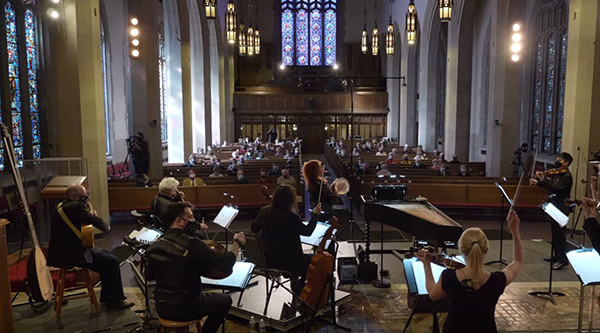
The latest program, which visits the ghetto and palace at Mantua and the ghetto and church at Venice, uses expressive instrumental music by Salamone Rossi, Giuseppe Sammartini, Antonio Vivaldi, and Alessandro Marcello, two of Benedetto Marcello’s 50 psalm settings, and Hebrew prayers and songs associated with Passover and Purim to evoke the rich cultural life of those towns. This review reports on the video of the performances made at First Baptist Church on March 20 and 21.
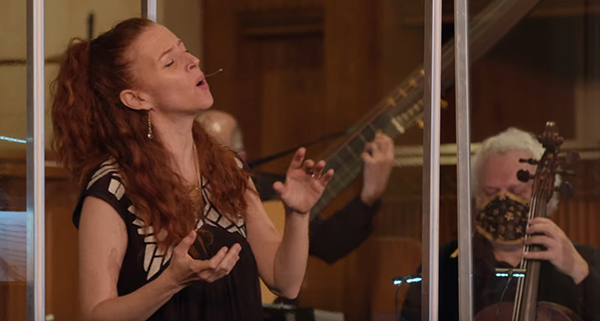
Violinists Alan Choo and Emi Tanabe chased each other’s ornamented lines in Monteverdi’s O come, sei gentile while soprano Ashlee Foreman and tenor Jacob Perry alluringly compared being in love to the fate of a caged bird.
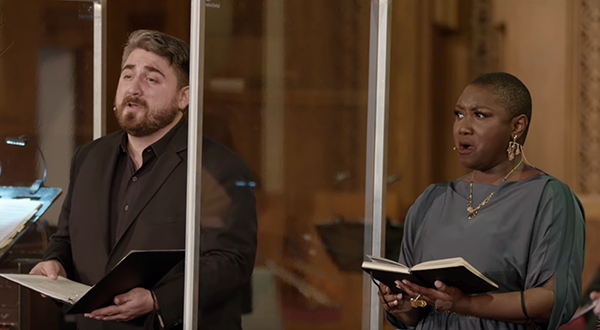
During the interval, cellists Daniel Moody,Jeffrey Strauss,René Schiffer and Kivie Cahn-Lipman,William Sims, Brian Kay,Alan Choo, Emi Tanabe, Ashlee Foreman,Jaacob Perry,Daphna Mor and lutenists William Sims and Brian Kay explained the distinctions between the instruments they played with consummate style: the piccolo cello, the viola da gamba, the lirone, the theorbo, and the archlute.
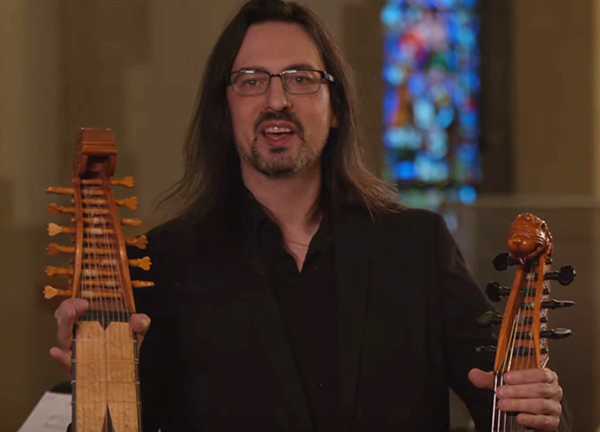
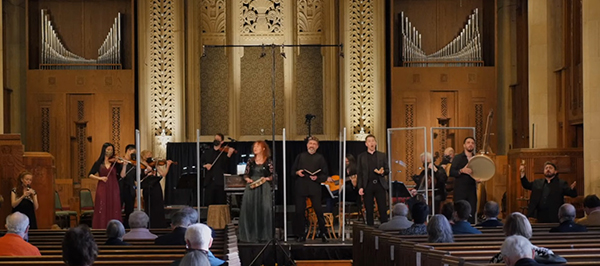
Published on ClevelandClassical.com April 7, 2021
Click here for a printable copy of this article



